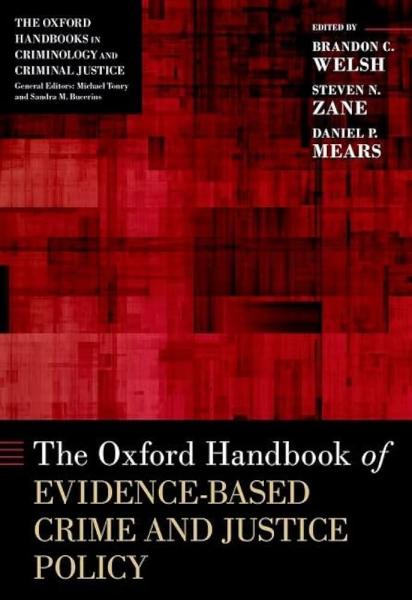
Since the mid-1800s, efforts to identify evidence-based policies in criminology research have been scattershot, leaving a gap between the demand for effective policy and a precise understanding of what it is.
A new book edited by a pair of researchers in Florida State University’s College of Criminology and Criminal Justice aims to address this gap.
In “The Oxford Handbook of Evidence-Based Crime and Justice Policy,” researchers Daniel Mears, Mark C. Stafford Professor of Criminology, and Steven Zane, assistant professor, compiled the thoughts of leading criminologists to showcase best practices and challenges confronting researchers in the field.
“If we look at the last 10 to 15 years, there has been great progress in the emphasis on translational criminology and evidence-based crime policy,” Zane said. “But there are substantial challenges that need to be addressed to improve the translation of research into effective policy.”
Brandon Welsh of Northeastern University served as co-editor of the book, which includes leading scholars and researchers from a host of fields related to criminology and criminal justice, including: psychology, sociology, public health, public policy and economics.

Steven Zane and Daniel Mears.
Mears emphasized that the book’s audience is aimed beyond academia to include policy makers.
“Recent calls to focus on translational criminology reflect that part of creating a safer and more just world involves identifying ways to take research and translate it in a practical manner that takes into account real-world conditions and constraints,” he said. “An evidence-based approach can go a long way to addressing an array of problems. The ultimate goal is to ensure that the best available evidence is considered in any decision that has bearing on the public good.”
